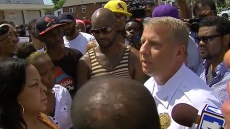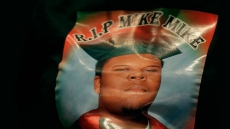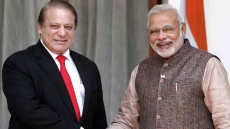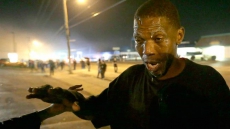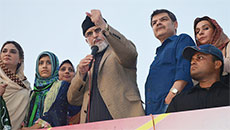As the celebrity photo-hacking scandal has made clear, privacy isn't what it used to be.
Whether famous or seemingly anonymous, people from all walks of life put all sorts of things online or into cloud-based storage systems, from vital financial information to the occasional nude photo. Periodic cases of hacking fuel outrage, but there's no retreat from digital engagement or any imminent promise of guaranteed privacy.
"We have this abstract belief that privacy is important, but the way we behave online often runs counter to that," said Nicholas Carr, whose extensive writings about the Internet include the 2010 book, "The Shallows: What the Internet is Doing to Our Brains."
"I'd hope people would understand that anything you do online could be made public," Carr said. "Yet there's this illusion of security that tempers any nervousness ... It's hard to judge risks when presented with the opportunity to do something fun."
The latest headlines involved nude photos of actress Jennifer Lawrence and other celebrities which were accessed via hacking and then posted online. Apple, which created the iCloud and other content-sharing systems, says individual accounts of some of the celebrities were targeted and hacked.
Privacy experts said users of online and cloud technology need not be famous to be vulnerable.
"What we're seeing is people who innocently and in many ways naively are lulled into sharing information that they wouldn't share with their next-door neighbour," said Marlene Maheu, a San Diego-based psychologist whose TeleMental Health Institute trains mental health professionals in how to expand their practice online.
Maheu offers this advice in regard to anyone with privacy concerns: "Would you be comfortable sharing this information at Thanksgiving dinner? If you're not, a red flag ought to go up."
Worries about privacy are part of a complex attitude that many Americans have toward their digital engagement.
Even as they share more information online, they also want to better control over who can see it, according to a study last year by the Pew Research Center's Internet and American Life Project.
According to Pew, 50 per cent of Internet uses were worried about the information available about them online, up from 33 per cent in 2009. While 86 per cent had tried at least one technique to hide their activity online or avoid being tracked, 59 per cent did not believe it was possible to be completely anonymous.
Eleven per cent of Internet users said important personal information had been stolen online, such as their Social Security number or bank account information, according to the study, and 21 per cent said an email or social networking account had been compromised or commandeered. And those findings came before disclosures of massive credit card data breaches at Target, Home Depot and other retailers.
The Pew study, done with help from Carnegie Mellon University, was based on data from 792 Internet and smartphone users contacted by telephone by Princeton Survey Research Associates International. The margin of error was 3.8 percentage points.
The director of Pew's Internet project, Lee Rainie, said most Americans view digital engagement as a trade-off, deeming the benefits — including social networking and online shopping — to be worth the risks.
"They say they're concerned about their privacy, yet they act in ways that don't necessarily show these concerns are a high priority to them," he said. "Old boundaries that people used to be able to attach to their identities and personal information are obliterated."
In June, the U.S. Supreme Court came down emphatically in defence of digital-age privacy, ruling unanimously that police generally may not search the cellphones of people they arrest without first getting search warrants.
Cellphones are "not just another technological convenience," Chief Justice John Roberts wrote for the court. "With all they contain and all they may reveal, they hold for many Americans the privacies of life."
Given such high stakes, there are multiple initiatives underway to educate consumers about threats to digital privacy and teach them ways to better protect it. For example, educators at more than a dozen top U.S. law schools have developed a curriculum aimed at equipping adolescents with a deeper understanding of the choices facing them in regard to online privacy.
Sherry Turkle, a Massachusetts Institute of Technology professor who has written extensively about computers and technology, says she is struck by the readiness of people to put things online or into cloud systems despite possible risks.
"The experience of being on 'your' page — that experience of being alone with the screen — makes it hard for people to experience the truth: that they are in a fragile, relatively unprotected environment and it is not a good place to put private things." Turkle said in an email.
"But it has become our main place to put private things. Our photos go directly to the cloud. We feel they are there, where we want them, under our control," she said. "That sense of privacy, in people's minds, is not overshadowed by the reality."
